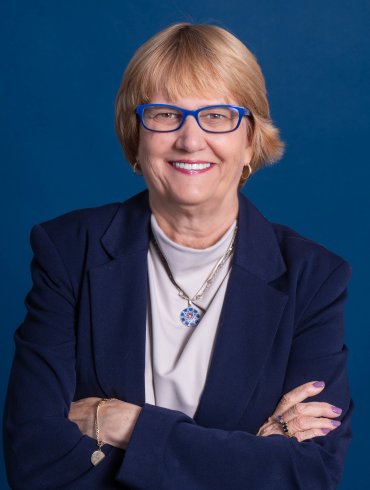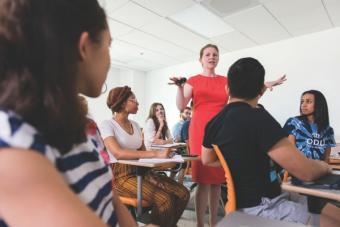Teaching Observation
At Old Dominion University we pride ourselves on excellent teaching, and we offer multiple ways to enhance teaching and learning in the classroom. One of these methods involves asking Center for Faculty Development (CFD) staff to observe you as you teach. These consultations and observations are designed to help teachers become more reflective and skilled professionals. Classroom consultations are available for all teaching faculty inclusive of graduate student teaching assistants, adjuncts, lecturers, tenure-track, and tenured faculty. We welcome you to the Center for discussions about teaching and how you can become a more effective instructor.
The CFD's teaching observation process is both systematic and iterative. The goals of observation are to:
-
Support faculty and aid them in reflecting on their teaching practices;
-
Share best practices, high-impact practices, and innovative strategies for enhancing instruction;
-
create targeted professional development opportunities; and,
-
foster mentoring opportunities so that faculty members can share knowledge and experiences with one another. There are two forms of observation possible involving a standard or long-term process. These processes are explained below:
The faculty member should complete a self-assessment form before presenting it during a pre-observation conference. During this conference, the observer will ask questions to gain insight on the upcoming lesson.
2A: Standard Teaching Observation:
- The standard classroom observation form can be used for peer observations, or the department chair or CFD representative can use it to monitor a faculty member's progress. It can be used to provide feedback, get ideas, and aid in strengthening instruction.
2B: Long-Term Teaching Observation:
- A long-term teaching observation is used in exceptional situations or as a chair tool. The long-term teaching observation provides the faculty member with insight into teaching effectiveness. It serves a developmental and evaluative function.
The post-observation conference provides the opportunity for debriefing. The conversation consists of reflection, meaningful feedback, and action steps. The CFD Teaching Observation Options and Tools booklet is accessible on this page at the link below and will further explain the observation process.
Contact for Consultation




